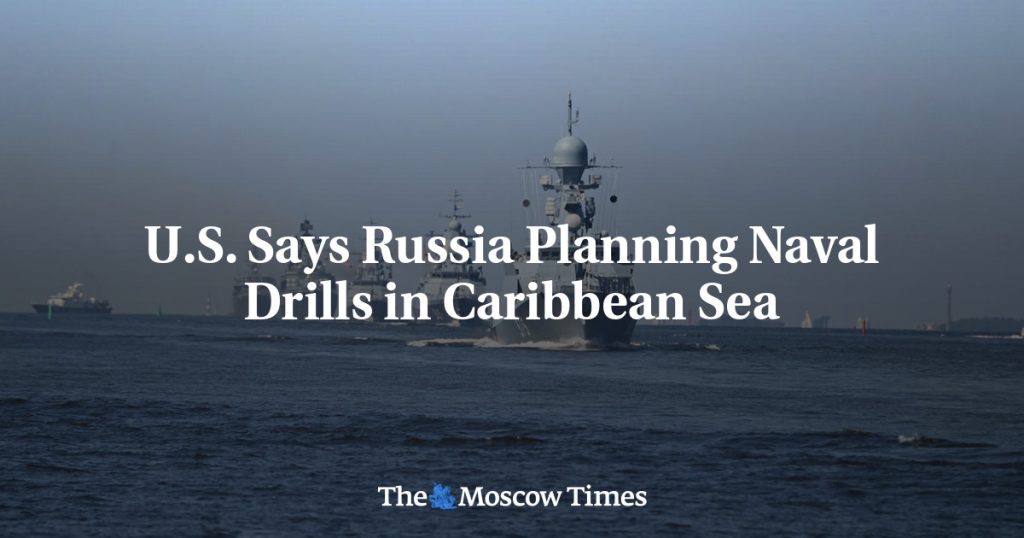Washington is closely monitoring Russian warships that are reportedly heading to the Caribbean Sea for military exercises this summer. The U.S. officials believe that these drills are part of Russia’s response to U.S. support for Ukraine, although Moscow has not officially notified Washington about the exercises. The presence of Russian warships and support vessels is expected to bring heightened naval and air activity near the United States, with potential port calls in Cuba and Venezuela, countries that have historically had close ties with Russia.
President Vladimir Putin has issued threats that Moscow could arm countries to target Western countries in retaliation for Western governments allowing Kyiv to use their weapons against Russia. The U.S. officials emphasize that Russia’s planned drills are part of regular military exercises and that all militaries have the right to conduct exercises in international waters. While Russia’s Defense Ministry has not publicly announced plans for naval exercises in the Caribbean Sea in the near future, they are planning a global naval exercise in the fall. These actions are seen as Russia’s attempt to project its naval power globally, following losses in the Black Sea during the invasion of Ukraine.
The Moscow Times, an independent news source that has been labeled as a “foreign agent” by the Russian government, is seeking support to continue its critical mission of providing accurate and unbiased reporting on Russia. The journalists at The Moscow Times refuse to be silenced and are committed to upholding the integrity of journalism and the values they hold dear. Readers are encouraged to support them financially, even with small contributions, as it makes a significant impact in supporting independent journalism. The reminder to support The Moscow Times can be monthly, starting from just $2, and can help in continuing the important work of providing open journalism on Russia.
The reports of Russian warships heading to the Caribbean Sea come amid ongoing tensions between Russia, the U.S., and other Western countries over the situation in Ukraine. The U.S. officials are closely monitoring the situation, considering it as part of Russia’s broader response to U.S. support for Ukraine. The potential for increased naval and air activity near the United States raises concerns about security and stability in the region, especially with the possibility of port calls in countries that have close ties with Russia. The threat of arming countries against Western targets adds another layer of complexity to the situation and highlights the ongoing geopolitical tensions.
Russia’s efforts to project its naval power globally, including planned exercises in the Caribbean Sea and a future global naval exercise, are seen as strategic maneuvers following losses in the Black Sea during the invasion of Ukraine. By conducting these military drills and showcasing its naval capabilities, Russia aims to assert itself as a significant player on the world stage. The need for international cooperation and communication to address these developments is crucial in maintaining peace and stability in the region. The increased military activity and geopolitical posturing by Russia raise concerns among Western governments and their allies, leading to heightened vigilance and strategic planning to counter potential threats.
The importance of independent journalism, such as The Moscow Times, in providing accurate and unbiased reporting on Russia is crucial in understanding the complex geopolitical landscape and developments in the region. The labeling of The Moscow Times as a “foreign agent” by the Russian government is seen as an attempt to silence dissenting voices and undermine press freedom. By supporting independent news sources like The Moscow Times, readers can contribute to upholding the principles of journalism and ensuring access to reliable information. The reminder to support The Moscow Times serves as a call to action for those who value the role of independent journalism in promoting transparency and accountability in society.


